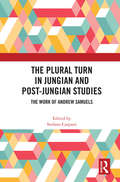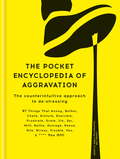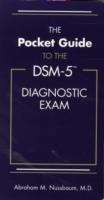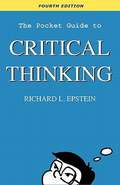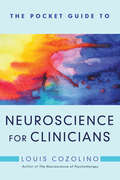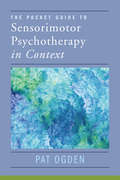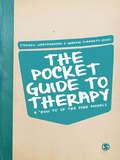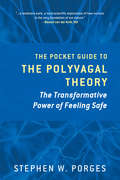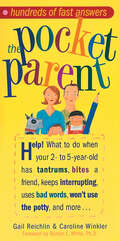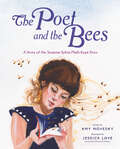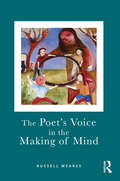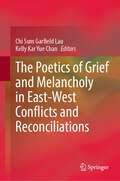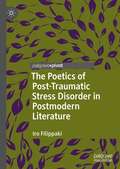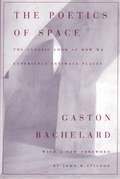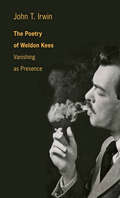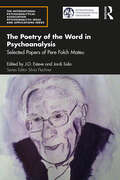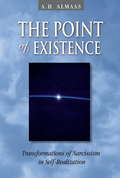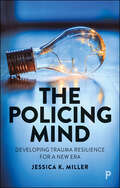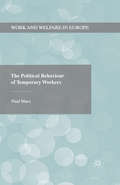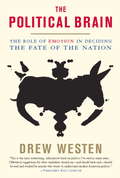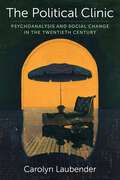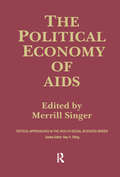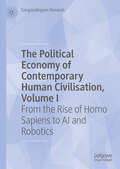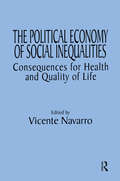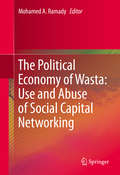- Table View
- List View
The Plural Turn in Jungian and Post-Jungian Studies: The Work of Andrew Samuels
by Stefano CarpaniThis unique book showcases the cutting-edge work of researchers in Jungian and post-Jungian studies, focusing on the advances being made at the University of Essex, UK, and operating as a Festschrift for Professor Andrew Samuels. The Plural Turn in Jungian and Post-Jungian Studies includes contributions from innovative authors who specialise in Jung but incorporate ideas from other psychoanalytic schools and from a range of disciplines. The book includes chapters which shed new light on concepts including alchemy, archetypes and individuation and which examine art, relationships and politics. It both honours the work of Andrew Samuels and sets the foundations of an ‘Essex School’ of Jungian studies. A wide-ranging collection, this book will be essential for academics and scholars of Jungian and post-Jungian studies. It will also be a key title for all readers with an interest in the work of Andrew Samuels.
The Pocket Encyclopedia of Aggravation: The Counterintuitive Approach to De-stressing
by Laura LeeAaarghgghhh!!@#%&*!!! Every time your mobile phone rings, it's an automated PPI call... You've forgotten one of your million different internet passwords... Once again, you're stuck in the slowest lane at the supermarket...This book investigates 97 day-ruining events, slap-in-the-face moments and everyday aggravations, and explains why these things irritate us quite so much. Let's face it, the world is becoming an increasingly annoying place to live - and THE POCKET ENCYCLOPEDIA OF AGGRAVATION has the evidence to prove it. It has been scientifically proven that when we understand the science behind our daily grievances, our problems become less frustrating and easier to manage. This fact-filled book will help reduce the stress of your daily grind. Designed with enlightening diagrams and witty drawings, THE POCKET ENCYCLOPEDIA OF AGGRAVATION finally answers the question, why is that so f*cking annoying?
The Pocket Guide To The DSM-5 Diagnostic Exam
by Abraham M. NussbaumDesigned for interviewers at all levels of experience, The Pocket Guide to the DSM-5 Diagnostic Exam is the clinicians companion for using DSM-5Tin diagnostic interviews. Beginning with an introduction to the diagnostic interview, the Pocket Guide addresses the goals of the interview, provides an efficient structure for learning how to conduct one, reviews the screening questions, and then tackles the ways in which DSM-5, with its updated approaches to diagnosis and classification, impacts the interview going forward. Significant revisions from DSM-IV-TRr to DSM-5 are reviewed. The final chapter, the core of the guide, walks the reader through a complete diagnostic exam that includes the follow-up questions for each of the DSM-5 disorder classes. The book is useful for beginners learning the format and flow of the diagnostic interview and for seasoned clinicians conducting an interview consistent with the significant revisions reflected in DSM-5. Not intended to replace DSM-5 itself or psychiatric interview texts, The Pocket Guide to the DSM-5 Diagnostic Exam is a pragmatic and concise resource for diagnosing a person in mental distress while establishing a therapeutic relationship.
The Pocket Guide to Critical Thinking (Fourth Edition)
by Richard L. Epstein Alex Raffi Carolyn KernbergerFirst comes clear thinking, then comes clear writing. The extraordinarily clear explanations in the Pocket Guide to Critical Thinking provide the essential skills to reason better-for classwork, for writing, and for use in everyday life. The book employs an abundance of engaging examples from everyday life that illustrate how to analyze arguments and make better decisions. The Pocket Guide is both the perfect supplement for any course that requires critical thinking, from the sciences to the humanities, and a practical aid for self-study or a reference source in writing. This extensively revised fourth edition has over 150 new examples and a new chapter on evaluating risks. Buyers of this book also get free access to hundreds of additional examples and exercises as well as further material for the sciences on the Critical Thinking Web Exchange at the Advanced Reasoning Forum website.
The Pocket Guide to Neuroscience for Clinicians (Norton Series on Interpersonal Neurobiology #0)
by Louis CozolinoA brief guide to the most important neuroscience concepts for all mental health professionals. Louis Cozolino helps clinicians to broaden their thinking and deepen their clinical toolbox through an understanding of neuroscience, brain development, epigenetics, and the role of attachment in brain development and behavior. The effective therapist must have knowledge of evolution and neuroanatomy, as well as the systems of our brains and how they work together to give rise to who we are, how we thrive, and why we suffer. This book will give clinicians all they need to understand the social brain, the developing brain, the executive brain, consciousness, attachment, trauma, memory, and the latest information about clinical assessment. Key figures and terms of neuroscience, along with numerous case examples, bring the material to life. Cozolino is one of the most gifted clinical writers on neuroscience, and his long- awaited pocket guide is a must- buy for any clinician working on the cutting edge of treatment.
The Pocket Guide to Sensorimotor Psychotherapy in Context (Norton Series on Interpersonal Neurobiology #0)
by Pat OgdenA guide to this groundbreaking somatic-cognitive approach to PTSD and attachment disturbances treatment. Pat Ogden presents Sensorimotor Psychotherapy with an updated vision for her work that advocates for an anti-racist, anti-oppression lens throughout the book. Working closely with four consultants, a mix of Sensorimotor Psychotherapy Institute graduates, trainers, consultants, and talented Sensorimotor Psychotherapists who have made social justice and sociocultural awareness the center of their work, this book expands the current conception of Sensorimotor Psychotherapy. Numerous composite cases with a variety of diverse clients bring the approach to life. This book will inspire practitioners to develop a deeper sensitivity to the issues and legacy of oppression and marginalization as they impact the field of psychology, as well as present topics of trauma and early attachment injuries, dissociation, dysregulation, and mindfulness through a Sensorimotor Psychotherapy lens.
The Pocket Guide to Therapy: A 'How to'of the Core Models
by Stephen Weatherhead Graeme Flaherty-JonesTrainees in all mental health professions need basic knowledge of the key therapeutic approaches in counselling and psychotherapy. The Pocket Guide to Therapy is therefore the essential companion, placing specific emphasis on practical application to guide the reader in the 'how to' of conducting each therapeutic model. Approaches covered include established models such as Cognitive Behavioural Therapy and Psychodynamic Psychotherapy, narrative therapies such as Systemic Therapy and Solution-Focussed Brief Therapy, and more recent additions to mainstream therapy such as Mindfulness and Narrative Therapy. Each chapter is written by an up-and-coming name in the field of counselling and psychotherapy, offering a unique insight into the challenges and possibilities of training in each model. The book: - includes case examples from a wide range of mental health care settings - is embedded with extensive pedagogy, including worksheets, sample questions and diagrams - highlights the challenges, strengths and weaknesses of each approach - details the background to each model - focuses on the practical application of therapeutic models - discusses evidence-based practice and outcomes Written in language familiar to first-year trainees and using a range of features to enhance learning, this pocket guide is ideal for those embarking on mental health training across counselling, psychotherapy, psychology, health, nursing and social work. It will also serve as a reference point for more experienced readers looking to refresh their understanding of other approaches.
The Pocket Guide to the Polyvagal Theory: The Transformative Power Of Feeling Safe (Norton Series on Interpersonal Neurobiology #0)
by Stephen W. PorgesBridging the gap between research, science, and the therapy room. When The Polyvagal Theory was published in 2011, it took the therapeutic world by storm, bringing Stephen Porges’s insights about the autonomic nervous system to a clinical audience interested in understanding trauma, anxiety, depression and other mental health issues. The book made accessible to clinicians and other professionals a polyvagal perspective that provided new concepts and insights for understanding human behavior. The perspective placed an emphasis on the important link between psychological experiences and physical manifestations in the body. That book was brilliant but also quite challenging to read for some. Since publication of that book, Stephen Porges has been urged to make these ideas more accessible and The Pocket Guide to the Polyvagal Theory is the result. Constructs and concepts embedded in polyvagal theory are explained conversationally in The Pocket Guide and there is an introductory chapter which discusses the science and the scientific culture in which polyvagal theory was originally developed. Publication of this work enables Stephen Porges to expand the meaning and clinical relevance of this groundbreaking theory.
The Pocket Parent
by Gail Reichlin Caroline WinklerIt's instant relief for when your 2-year-old is on the floor of the toy store, pitching a fit. Or when brother and sister discover that they can't stand each other. Or when your son can't say no to video games.The Pocket Parent is, literally, a pocket-size book of tried-and-true advice, common sense, parental wisdom, and sanity. Written by two professionals who've reared six children between them and made a career out of helping others with parenting issues, this handy book will be a lifesaver for every parent of a 2-to-5-year-old. It begins with an overall view of the Pocket Parent approach to discipline. Based on unconditional love but firm limits, and aimed at keeping the child's dignity and self-esteem intact, here are strategies that include "I" statements, modeling, family meetings, and "one word" requests. Once the ground rules are set, the guide moves to an A-to-Z compendium of common problems. Just look it up-Anger, Bad Words, Biting, Chores, Doctor Visits, Fears at Night, Lying, Separation Anxiety-and find the "Sanity Savers" list of suggestions, easy-to-follow bullets, anecdotes, and more.For the bag, glove compartment, backpack, or shelf in the kitchen, it's there for you whenever you need it.
The Poet and the Bees: A Story of the Seasons Sylvia Plath Kept Bees
by Amy NoveskyA mesmerizing picture book about the iconic poet Sylvia Plath and her final writingsLove, bees don&’t live long.But honey lives forever. Words, too.Sylvia Plath is remembered for her stirring poetry and the tragic legacy her work left behind. But it is lesser known that she was a beekeeper and completed her last book of poems while tending to her bees and harvesting honey.Author and beekeeper Amy Novesky shines a new light on the life and work of Plath through the lens of her last seasons with her beloved bees—and how during their short and busy lives, they filled her with inspiration and hope—while the evocative paintings by Stonewall Book Award winner Jessica Love reveal the tenderness and wonder of one of America's most iconic poets.
The Poet's Voice in the Making of Mind
by Russell MearesHow did the human mind evolve and how does it emerge, again and again, in individual lives? In The Poet’s Voice in the Making of Mind, Russell Meares presents a fascinating inquiry into the origin of mind. He proposes that the way in which mind, or self, evolved, may resemble the way it emerges in childhood play and that a poetic, analogical style of thought is a biological necessity, essential to bringing to fruition the achievement of the human mind. Taking a fresh look at the language used in psychotherapy, he shows how language, and conversation in particular, is central to the development and maintenance of self. His theory incorporates the ideas from William James, Hughlings, Jackson, Janet, Hobson, Gerald Edelman, Wolf Singer, Vygotsky and others. It is illuminated by extracts from literary artists such as Wallace Stevens, W.S. Merwin, Virginia Woolf, Joseph Conrad and Shakespeare. Encompassing psychotherapy; psychoanalysis; evolution; child development; literary criticism; philosophy; studies of mind and consciousness, The Poet’s Voice in the Making of Mind is an engaging, ground-breaking and thought-provoking work that will appeal to psychotherapists and psychoanalysts, as well as anyone interested in the emergence of mind and self.
The Poetics of Grief and Melancholy in East-West Conflicts and Reconciliations
by Kelly Kar Yue Chan Chi Sum Garfield LauThis book is a collection of academic essays that examines the representation, esthetics and dichotomy of the notions of grief and melancholy in East–West exchanges and cultural dialogues. It explores the topic in the dimensions of individual behaviors under specific social norms and cultural products such as literature, film and any other forms of arts/genres, etc.In his 1917 work Mourning and Melancholia (Trauer und Melancholie), Sigmund Freud connected the grief of loss with melancholic emotions which may give rise to acts of mourning. He suggested that “[i]n mourning it is the world which has become poor and empty; in melancholia it is the ego itself” (Freud, 1917: 246). Inspired by Freud’s stance and with the goal of providing up-to-date intellectual resources for academics, researchers and students with ardent interests in the varying exemplifications of grief and melancholy in Sino-Western contexts, the book serves more than a discussion over the pragmatic and ritualistic connections of grief and melancholy in relation to the inner self and the external world. It aims at the pursuit of a contemporary theorization of grief and melancholy beyond its modern limits.
The Poetics of Post-Traumatic Stress Disorder in Postmodern Literature (Palgrave Studies in Literature, Science and Medicine)
by Iro FilippakiThe Poetics of Post-Traumatic Stress Disorder in Postmodern Literature provides an interdisciplinary exploration in early medical trauma treatment and the emergent postmodern canon of the 1960s and 1970s. By identifying key postmodern literary tropes (paranoia, uncanniness, biomediation) as products of an overarching post-traumatic stress disorder (PTSD) narrative paradigm, this concise study reveals unexplored aspects of the canonical novels at hand—such as the link between individual and collective traumatization—highlights the presence of epic elements in postmodern narratives, and identifies the influence of emerging psychiatric treatment on the post-WWII novels at hand. Performing a medical humanities reading of Thomas Pynchon’s Gravity’s Rainbow (1973), Kurt Vonnegut’s Slaughterhouse-5 (1969), and Joseph Heller’s Catch-22 (1961), this book introduces a novel way of examining trauma at the intersection of narrative, history, and medicine and recalibrates the importance of postmodern politics of transformation, while making the case for an aesthetics of trauma. By examining the historico-political developments that dictated the formation of PTSD in the wake of the wars in Korea and Vietnam, this book argues that the perception of PTSD symptoms directly influenced aesthetic and literary tropes of the Cold War era.
The Poetics of Space
by Gaston Bachelard John R. StilgoeThirty years since its first publication in English, French philosopher Gaston Bachelard's The Poetics of Space one of the most appealing and lyrical explorations of home. Bachelard takes us on a journey, from cellar to attic, to show how our perceptions of houses and other shelters shape our thoughts, memories, and dreams.
The Poetry of Weldon Kees: Vanishing as Presence
by John T. IrwinA study in how a poet’s corpus is remembered after he vanishes.Weldon Kees is one of those fascinating people of whom you’ve likely never heard. Most intriguingly, he disappeared without a trace on July 18, 1955. Police found his 1954 Plymouth Savoy abandoned on the north side of the Golden Gate Bridge one day later. The keys were still in the ignition. Though Kees had alluded days prior to picking up and moving to Mexico, none of his poetry, art, or criticism has since surfaced either north or south of the Rio Grande. Kees’s vanishing has led critics to compare him to another American modernist poet who met a similar end two decades prior—Hart Crane. In comparison to Crane, Kees is certainly now a more obscure figure. John T. Irwin, however, is not content to allow Kees to fall out of the twentieth-century literary canon. In The Poetry of Weldon Kees, Irwin ties together elements of biography and literary criticism, spurring renewed interest in Kees as both an individual and as a poet. Irwin acts the part of literary detective, following clues left behind by the poet to make sense of Kees’s fascination with death, disappearance, and the lasting interpretation of an artist’s work. Arguing that Kees’s apparent suicide was a carefully plotted final aesthetic act, Irwin uses the poet’s disappearance as a lens through which to detect and interpret the structures, motifs, and images throughout his poems—as the author intended. The first rigorous literary engagement with Weldon Kees’s poetry, this book is an astonishing reassessment of one of the twentieth century’s most gifted writers.
The Poetry of the Word in Psychoanalysis: Selected Papers of Pere Folch Mateu (The International Psychoanalytical Association Psychoanalytic Ideas and Applications Series)
by Pere Folch MateuThe Poetry of the Word in Psychoanalysis presents selected key papers by leading Spanish psychoanalyst Pere Folch Mateu. The pieces chosen for this book address clinical, psychopathological, technical and theoretical issues approached in Folch Mateu’s unique style, providing an introduction to his impressive output. Folch Mateu integrates a wide range of psychoanalytic sources – Freud, Klein and Bion, and French psychoanalysis – in approaching topics like the psychoanalytic process, obsessive modes of control, the pathology of the negative and intellectual inhibition. The author’s interest in exploring the interactions between the analyst and the patient in minute detail through the course of the psychoanalytic process is a key theme that emerges throughout, as is his devotion to the intersections between music, literature and psychoanalysis. The Poetry of the Word in Psychoanalysis will be of great interest to psychoanalysts and psychotherapists in practice and in training, particularly those wishing to explore the boundaries of psychoanalysis and the integration of different psychoanalytic approaches.
The Point of Existence: Transformations of Narcissism in Self-Realization
by A. H. AlmaasIn this book, the author explores the underlying spiritual understanding of narcissism. He presents a detailed map of the steps involved in working through barriers that prevent us from recognizing the most essential nature of our true identity.
The Policing Mind: Developing Trauma Resilience for a New Era
by Jessica K. MillerHow does it feel to be a police officer in the UK? What happens in the brains of officers, particularly in high-risk roles such as counter-terrorism and child sexual exploitation? Jessica Miller uses the most recent neuroscience and real-life examples to explore risks to individual resilience, be it trauma exposure, burnout or simply the daily pressure of adapting to life on the front line. A compulsory read for anyone with an interest in policing, the book offers practical, easy-to-follow resilience techniques applicable to anyone in the wider emergency responder community. The book also offers policy and operational recommendations to equip police officers with skills to face crime in a post-COVID world.
The Political Behaviour of Temporary Workers (Work and Welfare in Europe)
by Paul MarxInsecure temporary employment is growing in Europe, but we know little about how being in such jobs affects political preferences and behaviour. Combining insights from psychology, political science and labour market research, this book offers new theories and evidence on the political repercussions of temporary jobs.
The Political Brain: The Role of Emotion in Deciding the Fate of the Nation
by Drew WestenThe Political Brain is a groundbreaking investigation into the role of emotion in determining the political life of the nation. For two decades Drew Westen, professor of psychology and psychiatry at Emory University, has explored a theory of the mind that differs substantially from the more "dispassionate" notions held by most cognitive psychologists, political scientists, and economists#151;and Democratic campaign strategists. The idea of the mind as a cool calculator that makes decisions by weighing the evidence bears no relation to how the brain actually works. When political candidates assume voters dispassionately make decisions based on "the issues," they lose. That's why only one Democrat has been re-elected to the presidency since Franklin Roosevelt#151;and only one Republican has failed in that quest. In politics, when reason and emotion collide, emotion invariably wins. Elections are decided in the marketplace of emotions, a marketplace filled with values, images, analogies, moral sentiments, and moving oratory, in which logic plays only a supporting role. Westen shows, through a whistle-stop journey through the evolution of the passionate brain and a bravura tour through fifty years of American presidential and national elections, why campaigns succeed and fail. The evidence is overwhelming that three things determine how people vote, in this order: their feelings toward the parties and their principles, their feelings toward the candidates, and, if they haven't decided by then, their feelings toward the candidates' policy positions. Westen turns conventional political analyses on their head, suggesting that the question for Democratic politics isn't so much about moving to the right or the left but about moving the electorate. He shows how it can be done through examples of what candidates have said#151;or could have said#151;in debates, speeches, and ads. Westen's discoveries could utterly transform electoral arithmetic, showing how a different view of the mind and brain leads to a different way of talking with voters about issues that have tied the tongues of Democrats for much of forty years#151;such as abortion, guns, taxes, and race. You can't change the structure of the brain. But you can change the way you appeal to it. And here's how#133;
The Political Clinic: Psychoanalysis and Social Change in the Twentieth Century (New Directions in Critical Theory #94)
by Carolyn LaubenderFor decades, psychoanalysis has provided essential concepts and methodologies for critical theory and the humanities and social sciences. But it is also, inseparably, a clinical practice and technique for treatment. In what ways is clinical practice significant for critical thought? What conceptual resources does the clinic hold for us today?Carolyn Laubender examines cases from Britain and its former colonies to show that clinical psychoanalytic practice constitutes a productive site for novel political thought, theorization, and action. She delves into the clinical work of some of the British Psychoanalytic Society’s most influential practitioners—including Anna Freud, Melanie Klein, Wulf Sachs, D. W. Winnicott, Thomas Main, and John Bowlby—exploring how they developed distinctive and politically salient practices. Laubender argues that these figures transformed the clinic into a laboratory for reimagining race, gender, sexuality, childhood, nation, and democracy. By taking up the clinic as both a site of inquiry and realm of theoretical innovation, she traces how political concepts such as authority, reparation, colonialism, decolonization, communalism, and security at once informed and were reformed by each analyst’s work.While psychoanalytic scholarship has typically focused on its intellectual, social, and political effects outside of the clinic, this interdisciplinary book combines history with feminist and decolonial social theory to recast the clinic as a necessarily politicized space. Challenging common assumptions that psychoanalytic practice is or should be neutral, apolitical, and objective, The Political Clinic also considers what progressive clinical praxis can offer today.
The Political Economy of AIDS (Critical Approaches in the Health Social Sciences Series)
by Merrill SingerFeatures a collection of seven research-based articles on AIDS. This work seeks to cut through popular misunderstanding and conventional ideas about the spread and impact of AIDS by employing a political economic perspective in the analysis of the epidemic in diverse settings.
The Political Economy of Contemporary Human Civilisation, Volume I: From the Rise of Homo Sapiens to AI and Robotics
by Sangaralingam RameshThis book, the first of two volumes, examines the evolution of humanity and development global economic systems to provide insight into the advances and challenges they have created. By placing modern technology and global crises within the context of long-term human development, it evaluates the threat of climate change on future generations by showing how past civilizations have survived and succumbed to climate events. A similar approach is taken with migration, where the current migration crisis is contrasted against historic migration patterns. The potential for artificial intelligence, quantum computing, nuclear fusion, and biotechnology to combat these challenges, as well as tackle poverty and inequality, are also discussed. This book highlights the consequences of human cognition and the constant desire for economic growth and evaluates whether they have been a net positive for human society. It will be of interest to students and researchers working on political economy and global challenges.
The Political Economy of Social Inequalities: Consequences for Health and Quality of Life (Policy, Politics, Health and Medicine Series)
by Vincente NavarroIn the last two decades of the 20th century, we witnessed a dramatic growth in social inequalities within and among countries. This has had a most negative impact on the health and quality of life of large sectors of the populations in the developed and underdeveloped world. This volume analyzes the reasons for this increase in inequalities and its consequences for the well-being of populations. Scholars from a variety of disciplines and countries analyze the different dimensions of this topic.
The Political Economy of Wasta: Use and Abuse of Social Capital Networking
by Mohamed A. RamadyThe term 'wasta stems from the Arabic root for 'middle' or 'medium' and describes the phenomenon of using 'connections' to find job, government services or other favors to circumvent bureaucracy or bypass the system as a whole. The effects of 'wasta' may be both positive or negative, and is not a phenomenon that is particular to the Arab or Muslim world, but also to many other cultures and regions of the world, with similar concepts popularly known as ubuntu, guanxi, harambee, naoberschop, or "old boy network" used in African, Chinese and European societies. By its very nature 'wasta' is an area of grey or even black information, and, like corruption to which it is most often associated, is hard to assess although country corruption perception indexes attempt to provide a quantifiable basis. In the final analysis such ratings are based on perceptions of corruption, and this perception may vary strongly depending on different societal structures and cultural modes, whether these are extended family systems, tribal, clans or more atomized societies where relationships are essentially transactional and rule based. In a western perspective where 'wasta' may be considered as a form of corruption, in other societies it may be perceived as something 'natural' and not criminal, and using one's 'wasta' in tribal societies to help clan members is seen as a duty. The difference stems from the 'innocent ' use of 'wasta' to make introductions, as opposed to its abuse in placing unqualified persons in positions . The volume brings together academics and professional experts to examine a range of multi-faceted social, economic and political issues raised by the use and abuse of social networking, covering various topics like: 'wasta' interpersonal connections in family and business ties, The relationship between inequality-adjusted human development and corruption perception indexes in the Gulf region, 'wasta' and business networking, assessing the economic cost of 'wasta', 'wasta' and its impact on quality oriented education reform and the perceptions of young people, The use of 'wasta' to overcome socio-cultural barriers for women and men The volume also offers insights into social relations and ethics, and how the use of 'wasta' contradicts with common held religious principles, along with some country studies on Islamic principles and the use of 'wasta'. Mohamed Ramady is a Visiting Associate Professor, King Fahd University of Petroleum and Minerals, Saudi Arabia.
